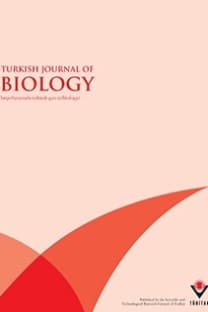Isolation and Characterization of Pediocin Producing Pediococcus pentosaceus Pep1 from Vacuum-Packed Sausages
Pediococcus pentosaceus Pep1 was isolated from vacuum-packed sausages, and it was shown to produce a potentially novel antimicrobial agent active against several species of Lactobacillus, Lactococcus, Leuconostoc, Pediococcus, Staphylococcus, Enterococcus, Bacillus and Listeria, many of which are associated with food spoilage and health hazards of food origin. Gram-negative organisms such as Yersinia enterocolitica and Escherichia coli were not inhibited by this antimicrobial agent. Since the antimicrobial agent was found to be sensitive to proteolytic enzymes, resistant to heat and organic solvents and active over a wide range of pH values, between 3 and 8, apparently most stable in the lower part of that range, it was identified as a bacteriocin and was designated as pediocin P.
Anahtar Kelimeler:
Vacuum-packed sausages, Pediococcus pentosaceus, pediocins, bacteriocins, characterization
Isolation and Characterization of Pediocin Producing Pediococcus pentosaceus Pep1 from Vacuum-Packed Sausages
Pediococcus pentosaceus Pep1 was isolated from vacuum-packed sausages, and it was shown to produce a potentially novel antimicrobial agent active against several species of Lactobacillus, Lactococcus, Leuconostoc, Pediococcus, Staphylococcus, Enterococcus, Bacillus and Listeria, many of which are associated with food spoilage and health hazards of food origin. Gram-negative organisms such as Yersinia enterocolitica and Escherichia coli were not inhibited by this antimicrobial agent. Since the antimicrobial agent was found to be sensitive to proteolytic enzymes, resistant to heat and organic solvents and active over a wide range of pH values, between 3 and 8, apparently most stable in the lower part of that range, it was identified as a bacteriocin and was designated as pediocin P.
Keywords:
Vacuum-packed sausages, Pediococcus pentosaceus, pediocins, bacteriocins, characterization,
- ISSN: 1300-0152
- Yayın Aralığı: 6
- Yayıncı: TÜBİTAK
